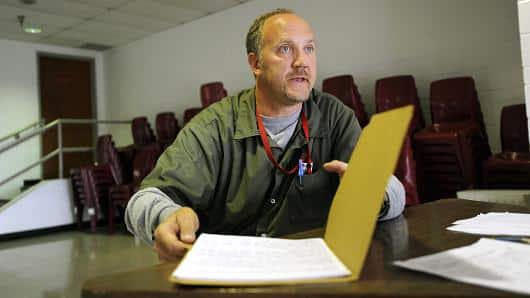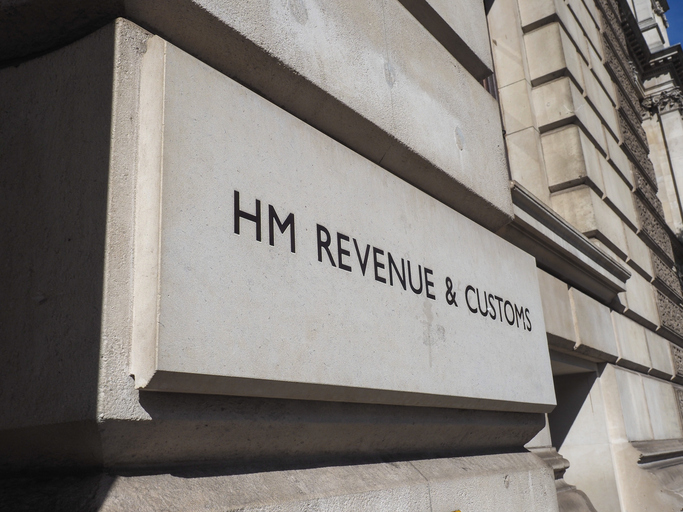UBS whistleblower, on the biggest tax-evasion scheme in U.S. history, Bradley Birkenfeld, goes to Jail while those that committed the crime pay fines

Nov 15, 2011
Barack Obama, who came into the presidency offering all this “change”, really should be hailing Bradley Birkenfeld as a modern-day hero.
Bradley Birkenfeld, former banker for Swiss giant UBS, blew the whistle on the largest tax-evasion scheme in American’s long U.S. history of people think others should pay for their government programs.
Rather than praising Birkenfeld, the Justice Department gave him a 40-month prison sentence.
However his former colleagues at UBS and thousands of rich American clients that hid away billions of dollars for decades in the Swiss Bank UBS seem to have gotten the opposite treatment.
In fact, the Justice Department let them buy their way out of jail.
UBS pled guilty and paid a $780 million fine, while thousands of U.S. citizens with undisclosed offshore accounts where permitted to belatedly disclose them and pay civil fees and penalties.
Only Birkenfeld, the 44-year-old whistleblower, landed in jail, this is another examples of injustice and hypocrisy in the Obama administration, and if Obama having upwards of 30 former employees of Goldman Sachs and its subsidiaries in his cabinet did not prove our government is controlled by bankers this does.
Additionally, how can one forget about that priceless photograph with the President golfing on Aug. 24 during his Martha’s Vineyard summer holiday with Robert Wolf, president of UBS Americas?
Of all the people in America why would Obama choose Wolf for a golf partner?
Wolf along with his employees contributed $540,000 towards Obama’s presidential campaign. Which made UBS the twelfth greatest campaign financing source.
The golf game was just 3 days following Birkenfeld’s severe sentencing and less than 7 days following UBS consenting to turn over the names of 4,450 of its American clients to the Justice Department. Which is a fraction of the 19,000 U.S. accounts the bank has confessed keeping secret from U.S. tax officials.
Why is Birkenfeld, who provided hundreds of these names to prosecutors, going to prison?
“Without Mr. Birkenfeld … I doubt … this massive fraud scheme would have been discovered,” Assistant U.S. Attorney Kevin Downing conceded at the Aug. 21 sentencing hearing.
Additionally prosecutors claimed in that hearing and in a “60 Minutes” interview that Birkenfeld withheld information on how he had helped his biggest U.S. client, California billionaire Igor Olenicoff, hide hundreds of millions in assets. So when Birkenfeld flew here from Switzerland in early 2008, they arrested and charged him.
Birkenfeld’s lawyer Stephen Kohn denies those allegations. He says the Justice Department is sending a terrible message to future whistleblowers.
Kohn filed a formal complaint yesterday with the U.S. attorney general’s office of professional responsibility, claiming the “main allegations used to secure [Birkenfeld’s] indictment and imprisonment were not based on accurate or truthful information.”
Birkenfeld offered to provide every name he knew of secret account holders at UBS, Kohn said, but he first wanted a formal subpoena because he was then a resident of Switzerland. Under Swiss law it is illegal to disclose client information.
The Justice Department refused to issue the subpoena, so Birkenfeld then went to the IRS, the Securities and Exchange Commission and the U.S. Senate during the summer of 2007 offering the information to them.
The Senate’s permanent investigations subcommittee agreed to subpoena him. He gave the committee a detailed deposition on Oct. 11, 2007 about UBS fraud scheme with lots of names, including that of Olenicoff. E-mails Kohn provided back up that claim.
Birkenfeld gave the same information to the IRS and the SEC.
Several weeks later, Olenicoff was indicted. He pleaded guilty and paid a $53 million fine.
Kohn has asked Attorney General Eric Holder for a formal investigation of the actions of Justice Department prosecutors.
Holder has his own UBS headache. Last year, the attorney general recused himself from the case because he once served as a lawyer for the Swiss bank.
The Birkenfeld case has exposed a lot more than hidden bank accounts.




